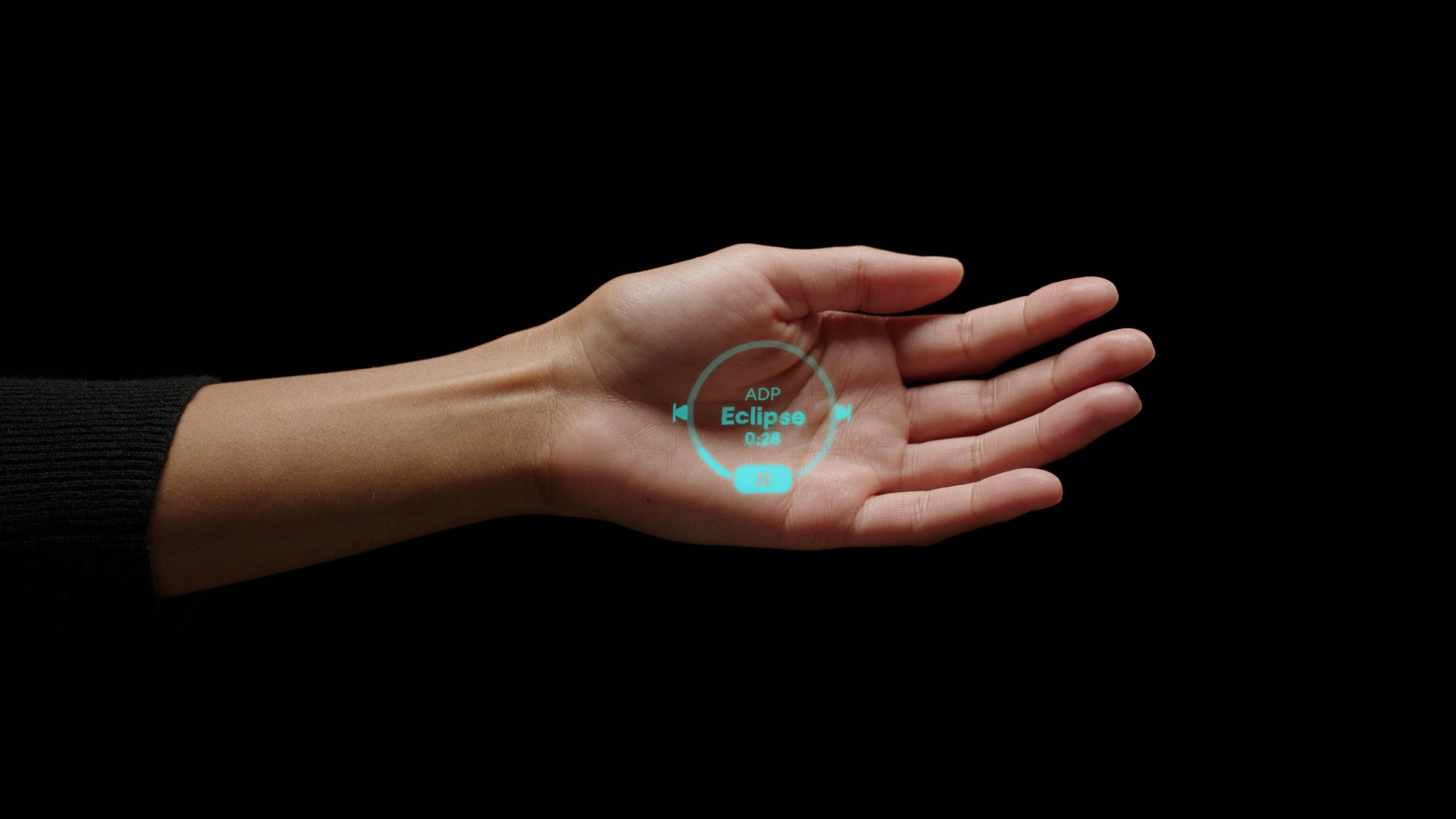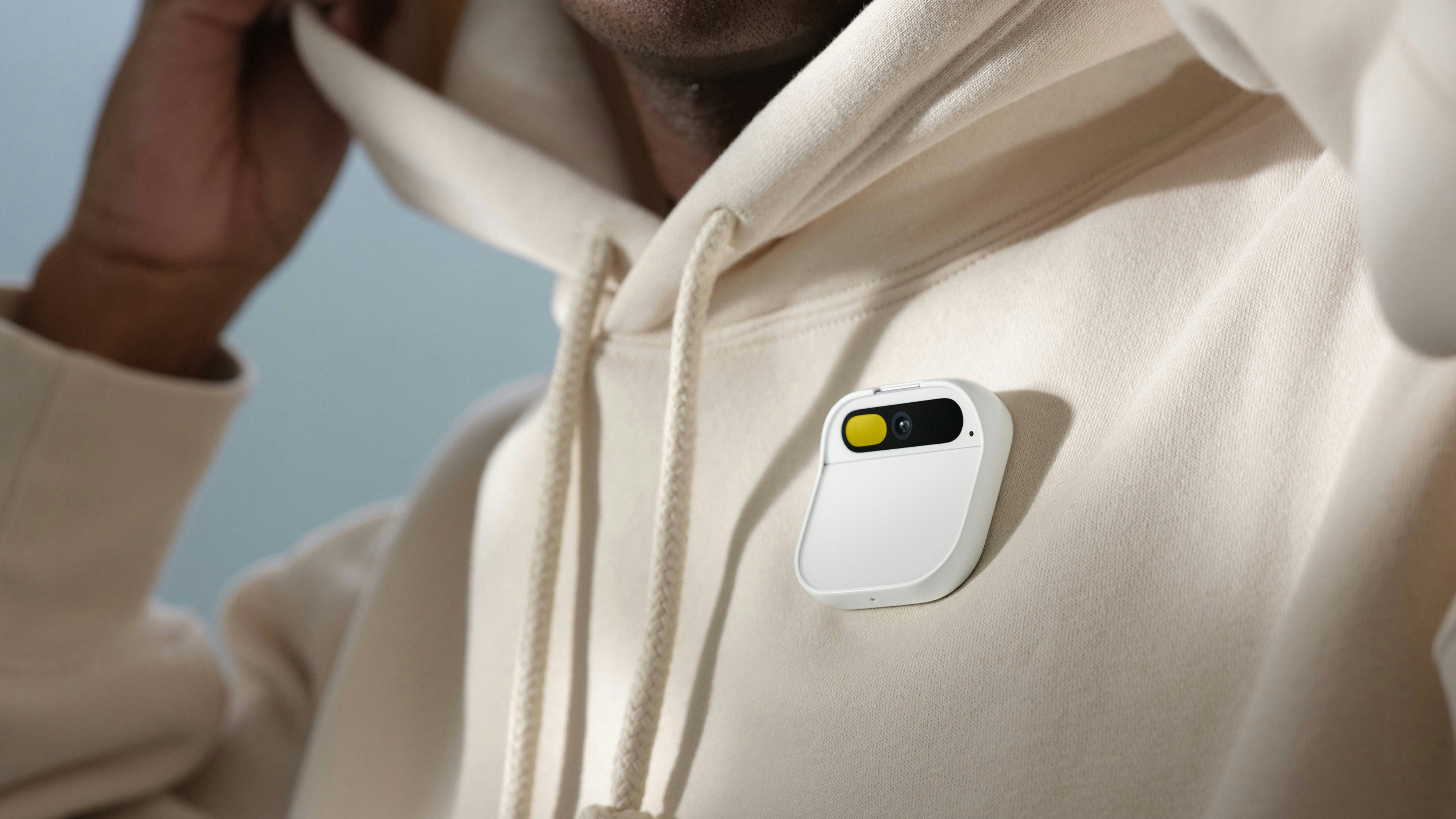
Take the library computer from Star Trek, combine it with the whimsical reliability of the droids from Star Wars, and throw in Google’s groundbreaking search bar design. Put it all together and you get the Humane Ai Pin, at least according to the startup’s head of product engineering Ken Kocienda.
With the mystery finally revealed on what Humane’s smartphone replacement even is, Kocienda offered up more detail on the inspiration behind the Ai Pin. In order to push computers forward and make them better, Kocienda says “our gadgets need to be a lot different than the ones we’ve been living with for years.”
HUMANE’S MOOD BOARD
We may not have the device in our hands yet, but at least we now have a much better idea of the thought process behind making the Ai Pin. In Kocienda’s X thread, he lists the Star Trek computer, Star Wars droids, and the Google search bar as his “three favorite sources of inspiration.”
From Star Trek’s library computer, Kocienda says the Ai Pin takes on its ability to act as an AI database that could interact naturally with crew members.
“The Star Trek computer is a huge library, always on call,” Kocidenda says in a thread. “The ship’s crew speaks to it naturally. From the time I was a kid watching reruns, I marveled at how Kirk and Spock collaborated with the computer to speculate, answer questions, and get critical work done fast.”
To add a little personality to the Ai Pin’s AI, Humane incorporates the “more whimsical” nature of the droids from Star Wars that offers both technical and emotional support.
“Star Wars droids are more whimsical,” Kocienda continues. “They offer constant technical support, but in a way that also provides much-needed emotional support. Humans converse with them, and while the droids are smart enough to talk back a little too, the little machines sincerely try to help.”
Finally, why Google’s game-changing search bar? “The Google search bar shows the kind of leap ahead a new technology can bring. Internet search was ridiculously bad before Google, and then in a moment, it became great. The model was so easy. Type anything into the search bar and get useful results in an instant.”

“In my work at Humane, I’ve tried to move personal computing in these directions by combining the ubiquity of the Star Trek computer with the ‘never leave your planet without one’ utility of a Star Wars droid with the not-science-fiction fact of the Google search bar,” says Kocienda.
AI, however, is going to be very core to new computing experiences. “AI has made it possible to drive toward these goals with a new vigor. The promise now exists to create software that can understand us better, that can orchestrate actions flexibly, and that can know when it has done what it was asked to do.”
“The Ai Pin turns this potential into reality — just put your finger down on the touchpad and speak a request,” Kocienda writes. “The computer understands you and gets to work.”
BEST OF THREE WORLDS

Taking from these three titans, the Ai Pin might represent the wildest crossover event in history. (Sorry Infinity War.) Kocienda’s recipe for the Ai Pin does sound like a winning formula, but it remains to be seen whether or not Humane can deliver on the experiences the Ai Pin promises. There’s so much that the Ai Pin can’t do that it might be hard to convince people to ditch their smartphones. And do people even want to unplug from their screens to remain more present? Maybe, but also maybe not.
Inverse’s Ian Carlos Campbell was able to get a hands-on demo with the Ai Pin if you want an early look. To see if the Ai Pin matches up to Kocienda’s vision for yourself, you’ll have to drop the initial $699 buy-in and sign up for the $24 per month subscription when it goes up for order on November 16.







